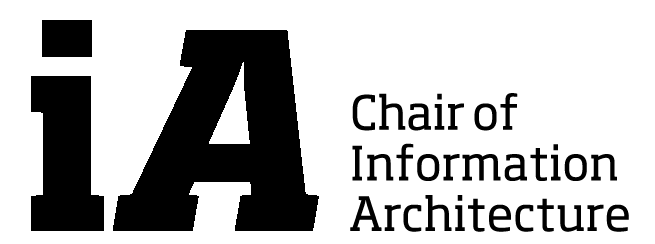
Teaching
Jan - 22 - 2015
FS2015 | Information Architecture of Cities
Jan - 22 - 2015
FS2015 | Digital Urban Simulation
Jan - 21 - 2015
FS2015 | Creative Data Mining
Sep - 22 - 2014
HS2014 | Digital Urban Simulation
Sep - 19 - 2014
HS2014 | Digital Urban Visualization. Understanding Dynamics
Jul - 21 - 2014
HS2014 | Information Architecture of Cities
Jan - 16 - 2014
FS2014 | Information Architecture of Cities
Jan - 16 - 2014
FS2014 | Visualize ComplexCity
Jan - 16 - 2014
FS2014 | New Methods in Urban Analysis and Simulation
Aug - 27 - 2013
HS2013 | New Methods in Urban Analysis and Simulation
Aug - 26 - 2013
HS2013 | Information Architecture of Cities
Aug - 23 - 2013
HS2013 | Discover Urban Qualities
Jan - 24 - 2013
FS2013 | Visualize ComplexCity
Jan - 14 - 2013
FS2013 | Information Architecture of Cities
Sep - 12 - 2012
HS12 | Visualize ComplexCity
Aug - 22 - 2012
Seminar Week October 2012
Jan - 23 - 2012
Integrated / Course Elective: Public Projections
Jan - 20 - 2012
SIMULATING URBAN DESIGN FUTURES
Jan - 20 - 2012
Articulating Urban Complexities
Jan - 17 - 2012
Major Course: NEWSIM